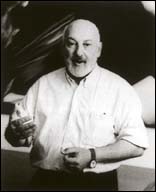
A new drug for multiple sclerosis, the second MS medication to emerge recently from Weizmann Institute research, promises relief for the many victims of this debilitating condition.
For a million young people around the world, the joys of young adulthood are hearsay. What should have been the best years of their lives have been transformed into a series of unpredictable nightmares as they cope with episodes of relapsing-remitting multiple sclerosis. When an attack comes on, these 20- and 30-something victims can experience numbness, tingling, weakness or even paralysis of the limbs, general fatigue, blurred vision and even blindness.
Multiple sclerosis is an autoimmune disease. Mistaking the body's own cells for foreign invaders, the immune system attacks and destroys the myelin sheath that insulates nerves. Messages moving along the nerve fibers are interrupted before they can reach their destination, resulting in loss of function.
Help is now on the way in the form of a new recombinant drug based on the research of Weizmann Institute virologist Prof. Michel Revel of the Molecular Genetics Department. Interferons, the subject of Revel's research for more than 30 years, play a key role in the immune system. The beta-interferon cloned and developed in his laboratory delays relapses of multiple sclerosis.
The new drug is a genetically engineered form of beta-interferon, derived from a mammalian cell line. Called Rebif®, for recombinant beta-interferon, the new medication results from a long-standing collaborative effort between the Weizmann Institute and InterPharm Laboratories Ltd., a subsidiary of the Swiss pharmaceutical company Ares-Serono. InterPharm's beta-interferon plant, in the Kiryat Weizmann Science Park, is one of only a few genetic engineering facilities in the world that use mammalian cell technology to produce molecules identical to human proteins. It is this characteristic that makes Rebif® easy for patients to tolerate.
Ares-Serono reports that clinical trials in Europe over the past two years have demonstrated Rebif®'s effectiveness. In Hamburg, Germany, neurologist and multiple sclerosis specialist Dr. Wolfgang Elias has been prescribing the new drug and monitoring his patients' reactions.
"My patients have 50 percent fewer relapses, meaning fewer days when they are incapable of work, and less neurological regression," says Elias.
According to Ares-Serono, more than 2,000 patients in 15 countries are now participating in clinical trials being carried out by the company. This is the most comprehensive worldwide research program ever carried out for the treatment of multiple sclerosis, covering the relapsing-remitting form of the disease as well as secondary progressive and early-onset MS.
Rebif® is the second multiple sclerosis medication to be developed through research conducted at the Weizmann Institute. In December 1996, the U.S. Food and Drug Administration approved the use of Copaxone® for this disease. The drug, produced by Israel's Teva Pharmaceutical Industries Ltd., was originally synthesized and developed by Profs. Ruth Arnon and Michael Sela and Dr. Dvora Teitelbaum of the Institute.
Prof. Revel holds the Ruth and Jerome A. Siegel and Freda and Edward M. Siegel Chair of Virology; Prof. Arnon, the Paul Ehrlich Chair of Immunology and Prof. Sela, the W. Garfield Weston Chair of Immunology. Research facilities: Estate of Morris Goldstein, Fort Lauderdale, Florida.
